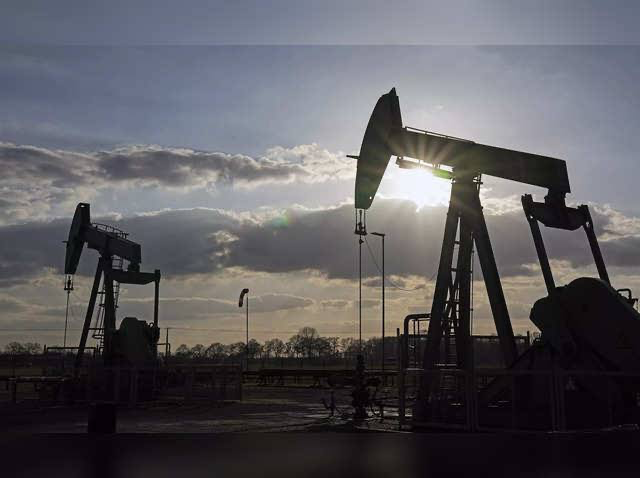LONDON – Oil markets are jittery after Iran launched a surprise attack on Israel over the weekend, raising concerns of a wider conflict that could disrupt global oil supplies. Analysts predict an initial rise in oil prices on Monday, but the long-term trend hinges on the response from Israel and the West.
This is the first time Iran has directly attacked Israeli territory. The strike, launched in retaliation for a suspected Israeli attack on its consulate in Syria, sent shockwaves through the region and revived fears of a full-blown war.
Oil prices climbed steadily last week on anticipation of Iranian retaliation. Brent crude, the global benchmark, reached a high of $92.18 a barrel on Friday, the highest since October 2023. Analysts believe prices will jump again when trading resumes on Monday.
However, the impact on oil prices depends heavily on how the situation unfolds. “Unless there’s a major disruption to oil supplies from the region, any price surge is likely to be short-lived,” said Tamas Varga of oil broker PVM.
Focus on Global Response and Potential Supply Chain Impact
The international community is scrambling to contain the crisis. U.S. President Joe Biden convened a virtual meeting of G7 leaders on Sunday to discuss a coordinated diplomatic response.
A key factor to watch is the potential impact on oil shipments through the Strait of Hormuz, a vital chokepoint for global oil transportation. Iran’s Revolutionary Guard has previously threatened to close the strait if necessary.
“The biggest concern for oil prices is the potential closure of the Strait of Hormuz,” said Ole Hansen, analyst at Saxo Bank. “Nearly a fifth of the world’s daily oil consumption travels through that waterway, so any disruption there would send prices skyrocketing.”
Election Concerns Cloud US Response
The situation in the Middle East adds another layer of complexity to U.S. domestic politics. President Biden faces re-election in November against his predecessor, Donald Trump, who imposed harsh sanctions on Iran.
While the Biden administration has said it’s not encouraging Iran to increase oil exports, a potential disruption in Iranian oil supplies could lead to higher gasoline prices in the U.S. – a politically sensitive issue ahead of the elections.
Hope for De-escalation Despite Heightened Tensions
The international community is urging all parties to exercise restraint and avoid actions that could escalate the conflict. The potential economic consequences of a wider war are dire, not just for the Middle East but for the global economy as well.
While the immediate future remains uncertain, there’s still hope for a peaceful resolution. The international community’s swift response and ongoing diplomatic efforts might prevent the situation from spiraling further out of control.
Source: Reuters



